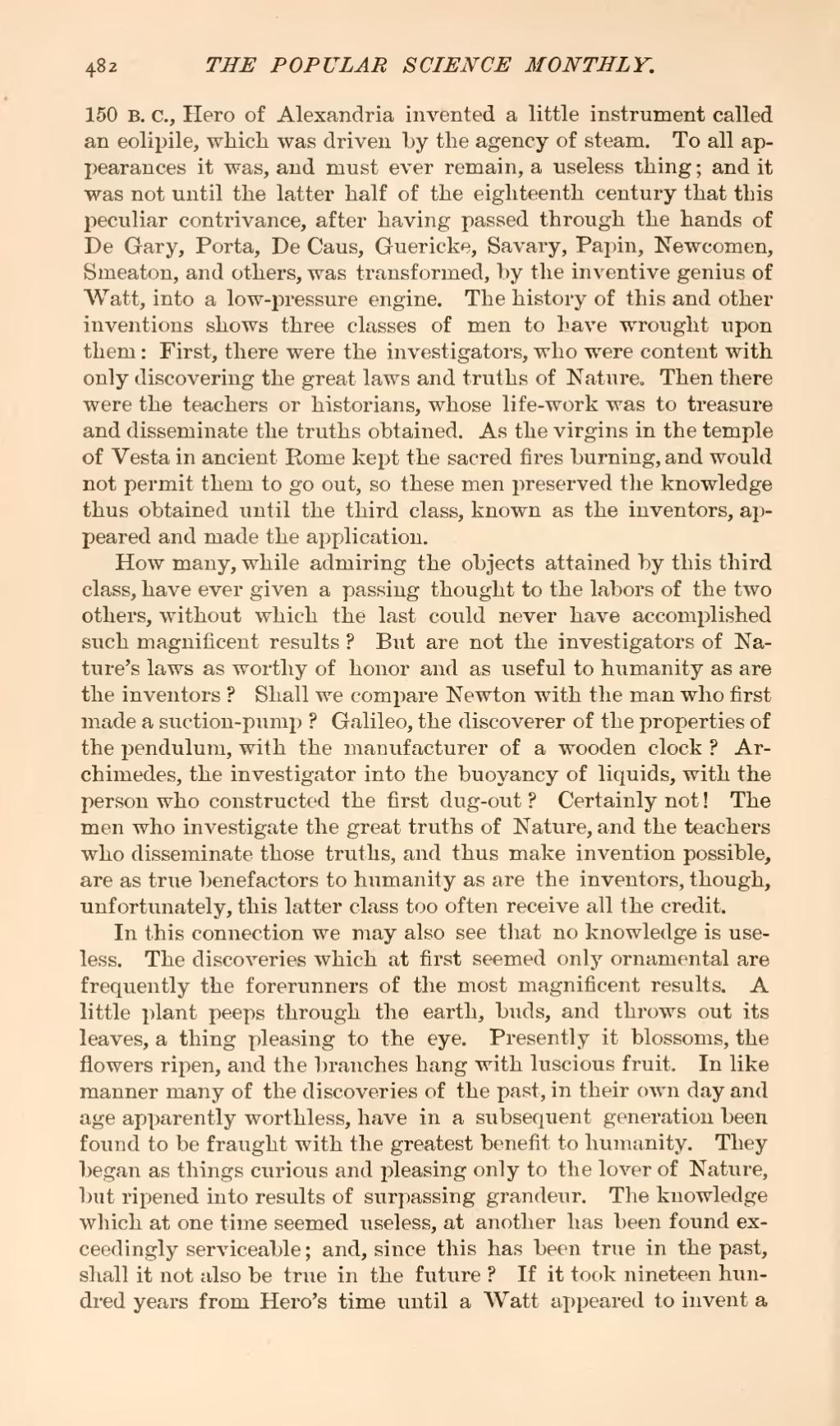150 b. a., Hero of Alexandria invented a little instrument called an eolipile, which was driven by the agency of steam. To all appearances it was, and must ever remain, a useless thing; and it was not until the latter half of the eighteenth century that this peculiar contrivance, after having passed through the hands of De Gary, Porta, De Caus, Guericke, Savary, Papin, Newcomen, Smeaton, and others, was transformed, by the inventive genius of Watt, into a low-pressure engine. The history of this and other inventions shows three classes of men to have wrought upon them: First, there were the investigators, who were content with only discovering the great laws and truths of Nature. Then there were the teachers or historians, whose life-work was to treasure and disseminate the truths obtained. As the virgins in the temple of Vesta in ancient Rome kept the sacred fires burning, and would not permit them to go out, so these men preserved the knowledge thus obtained until the third class, known as the inventors, appeared and made the application.
How many, while admiring the objects attained by this third class, have ever given a passing thought to the labors of the two others, without which the last could never have accomplished such magnificent results? But are not the investigators of Nature's laws as worthy of honor and as useful to humanity as are the inventors? Shall we compare Newton with the man who first made a suction-pump? Galileo, the discoverer of the properties of the pendulum, with the manufacturer of a wooden clock? Archimedes, the investigator into the buoyancy of liquids, with the person who constructed the first dug-out? Certainly not! The men who investigate the great truths of Nature, and the teachers who disseminate those truths, and thus make invention possible, are as true benefactors to humanity as are the inventors, though, unfortunately, this latter class too often receive all the credit.
In this connection we may also see that no knowledge is useless. The discoveries which at first seemed only ornamental are frequently the forerunners of the most magnificent results. A little plant peeps through the earth, buds, and throws out its leaves, a thing pleasing to the eye. Presently it blossoms, the flowers ripen, and the branches hang with luscious fruit. In like manner many of the discoveries of the past, in their own day and age apparently worthless, have in a subsequent generation been found to be fraught with the greatest benefit to humanity. They began as things curious and pleasing only to the lover of Nature, but ripened into results of surpassing grandeur. The knowledge which at one time seemed useless, at another has been found exceedingly serviceable; and, since this has been true in the past, shall it not also be true in the future? If it took nineteen hundred years from Hero's time until a Watt appeared to invent a

